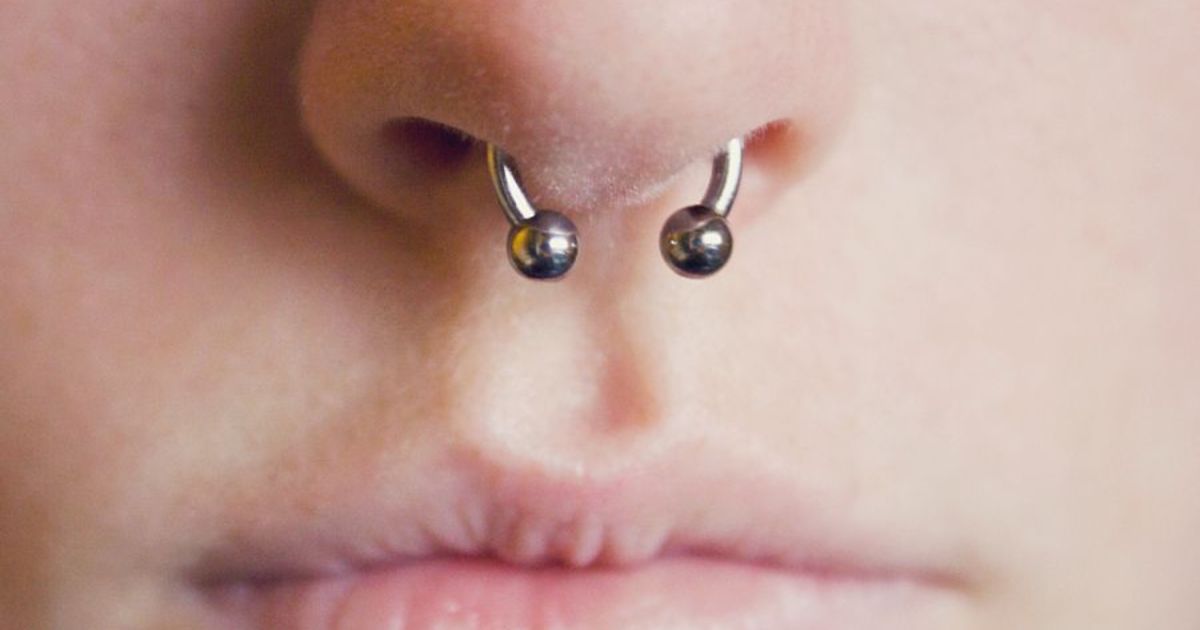Nose Piercing Smell refers to the distinct odor sometimes associated with nose piercings. When individuals notice an unusual scent emanating from their nose piercing, it can be a cause for concern and curiosity. This smell can vary from person to person and is often described as slightly metallic or reminiscent of healing tissue.
Why Does My Nose Piercing Smell? is a question that often crosses the minds of individuals who have recently undergone nose piercing or are experiencing an unexpected scent. This inquiry serves as a common point of interest for those seeking answers to a peculiar phenomenon associated with their nose piercings.
Maintaining good hygiene practices is key to managing Nose Piercing Smell effectively. The scent can be attributed to various factors, such as the body’s natural healing process, accumulation of dead skin cells, or the presence of bacteria around the piercing site.
Understanding Nose Piercing Smell
Nose piercing smell can be a perplexing issue for individuals with newly pierced noses. The scent is often described as a combination of metallic and flesh-like odors, which may cause concern and discomfort. This phenomenon is typically associated with the body’s natural healing process after a piercing, as the wound is prone to bacterial activity.
The scent is not necessarily a sign of infection but rather a result of the body’s response to the trauma of piercing. It’s important for individuals to understand that a certain level of odor is normal during the initial healing stages of a nose piercing.
Nose Piercing Smell Solutions
Fortunately, there are effective solutions to address nose piercing smell and minimize any associated discomfort. Proper hygiene is crucial during the healing process; individuals should clean their piercings regularly with a saline solution to prevent bacterial growth.
Choosing the right jewelry, such as surgical stainless steel or titanium, can also contribute to minimizing odor. Avoiding irritants like perfumes and harsh cleaning agents near the piercing site is advisable. Nostril piercings have important cultural and historical significance in various ancient civilizations.
Tips to Prevent Nose Piercing Smell

Preventing nose piercing smell involves adopting a proactive approach to piercing aftercare. Cleaning the piercing site with a saline solution twice a day helps eliminate bacteria that contribute to odor. Avoiding touching the piercing with unwashed hands and refraining from rotating the jewelry excessively can also aid in preventing infection and subsequent smell.
Choosing breathable materials for jewelry and avoiding heavy makeup or facial creams around the piercing can contribute to a smoother healing process. Consistent and mindful aftercare practices play a vital role in preventing nose piercing smell.
Common Causes of Nose Piercing Smell You Should Know
Understanding the common causes of nose piercing smell is essential for effective prevention and management. One primary factor is the natural bacteria present on the skin, which can multiply in the wound created by the piercing. Poor hygiene practices, such as infrequent cleaning or using harsh cleansers, can exacerbate the issue.
Another common cause is the type of jewelry used; materials that trigger allergies or harbor bacteria can contribute to unpleasant odors. Additionally, external factors like exposure to dust, pollutants, or excessive moisture can compromise the healing process, leading to an increased likelihood of odor.
Investigating the Natural Odor of Nose Piercings
Investigating the natural odor of nose piercings involves recognizing the various elements contributing to the scent. Initially, the smell is often a result of the body’s response to the trauma of piercing, leading to the secretion of lymph, a clear fluid that plays a vital role in the healing process.
The presence of this fluid, combined with the natural bacteria on the skin, creates a distinct scent. It’s crucial for individuals to differentiate between the normal healing process and signs of infection. Monitoring changes in the odor and consulting with a professional if the scent becomes foul or accompanied by other concerning symptoms is essential for maintaining the health of the piercing.
Eliminating Nose Piercing Smell
Eliminating nose piercing smell requires a combination of proper aftercare and targeted solutions. Regular cleaning with a saline solution helps keep the piercing site free from bacteria, reducing the likelihood of odor. In some cases, changing the type of jewelry to materials less prone to bacterial buildup, such as titanium or surgical stainless steel, can make a significant difference.
Adequate ventilation and avoiding tight-fitting jewelry can also contribute to the reduction of smell. Individuals should be patient and consistent in their efforts, as complete elimination of the scent may take time, especially during the initial healing stages.
Signs That Nose Piercing Smell Isn’t Normal

While a certain degree of odor is normal during the healing process, there are signs that indicate nose piercing smell may not be within the expected range. Foul or strong smells, accompanied by persistent redness, swelling, and excessive discharge, could be indicative of an infection.
If the scent becomes noticeably unpleasant or if there’s any doubt about the healing progress, individuals should seek prompt medical attention. Ignoring abnormal signs may lead to complications and hinder the overall success of the piercing.
Choosing the Right Jewelry to Minimize Nose Piercing Smell
Selecting the right jewelry is a crucial aspect of minimizing nose piercing smell. Certain materials, such as surgical stainless steel, titanium, or niobium, are less likely to trigger allergies or harbor bacteria, reducing the risk of unpleasant odors. It’s essential to choose jewelry that allows for proper ventilation and avoids trapping moisture, as a dry environment promotes optimal healing.
Opting for hypoallergenic options can help prevent skin reactions that may contribute to smell. Consulting with a professional piercer for guidance on suitable jewelry based on individual preferences and sensitivities is a prudent step in ensuring a comfortable and odor-free healing process.
Conclusion
A nose piercing emitting an unpleasant odor can be a common concern but is often manageable. The smell is usually attributed to the accumulation of dead skin cells, sebum, and bacteria around the piercing site. Maintaining good hygiene practices, such as regular cleaning with a saline solution, can help alleviate this issue.
If the odor persists or is accompanied by other symptoms like redness or swelling, it’s advisable to consult with a professional piercer or healthcare provider for a thorough assessment. Understanding the reasons behind a smelly nose piercing empowers individuals to take proactive steps in caring for their piercing and ensuring a healthy healing process.



















